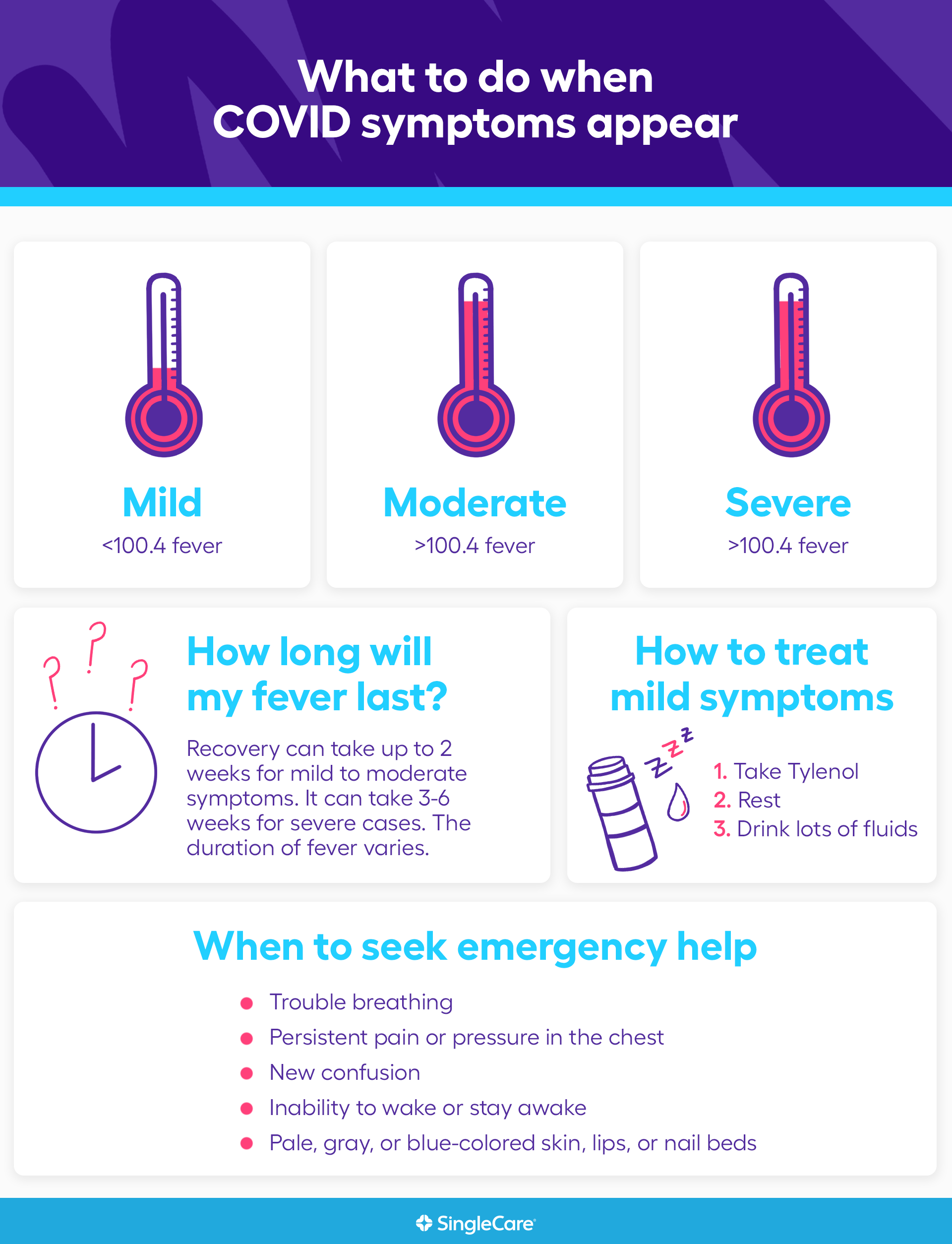What is mild COVID like?

How do you know if you have mild Covid symptoms
Mild symptoms
mild upper respiratory tract symptoms, such as a congested or runny nose, sneezing, or a scratchy or sore throat. cough with no difficulty breathing. new aches and pains, or lethargy or weakness without shortness of breath. mild headache.
What is the best thing to do with mild Covid
Most people with COVID-19 have mild illness and can recover at home. You can treat symptoms with over-the-counter medicines, such as acetaminophen (Tylenol) or ibuprofen (Motrin, Advil), to help you feel better.
How long does it take for mild Covid symptoms to go away
Most people who become sick with COVID-19 will only have mild illness and can get better at home. Symptoms might last a few days. People who have the virus might feel better in about a week.
Can mild Covid symptoms get worse
Some people who begin with mild symptoms of COVID-19 find that they get worse. This is more likely to happen if you have risk factors for severe disease. Common risk factors include obesity and type 2 diabetes.
Cached
What are the 3 new Covid symptoms
On June 30, the Centers for Disease Control and Prevention added three symptoms to its COVID-19 list: Congestion/stuffy nose, nausea and diarrhea. Those three new conditions now join other symptoms identified by the CDC: Fever.
What day does COVID peak
In infected individuals, the peak viral load occurred on day 5, with the virus first detected in the throat and then rising to significantly higher levels in the nose.
Am I still contagious after 5 days of COVID
You can leave isolation if: It has been 5 days after your symptoms began (or if you never develop symptoms, 5 days after your initial positive test), and. You are fever-free for at least 24 hours (without taking fever-reducing medications), and. Other symptoms are improving.
What are the 3 new COVID symptoms
On June 30, the Centers for Disease Control and Prevention added three symptoms to its COVID-19 list: Congestion/stuffy nose, nausea and diarrhea. Those three new conditions now join other symptoms identified by the CDC: Fever.
What does the very beginning of COVID feel like
Fever or chills. Cough. Shortness of breath or difficulty breathing. Fatigue.
How long am I contagious after testing positive for COVID
You are considered contagious from two days before your symptoms begin until 10 days after your symptoms began. If you have no symptoms, you are considered contagious beginning two days before your test sample was collected and until 10 days after your test sample was collected.
At what stage does COVID worsen
A person may have mild symptoms for about one week, then worsen rapidly. Let your doctor know if your symptoms quickly worsen over a short period of time.
When does COVID get worse
A person may have mild symptoms for about one week, then worsen rapidly. Let your doctor know if your symptoms quickly worsen over a short period of time.
How long will I test positive for COVID after having it
I do not have symptoms
Use an antigen test. Repeat negative tests following FDA recommendations. After a positive test result, you may continue to test positive for some time. Some tests, especially PCR tests, may continue to show a positive result for up to 90 days.
Are you still contagious with COVID-19 after 5 days
People with moderate or severe COVID-19 should isolate through at least day 10. Those with severe COVID-19 may remain infectious beyond 10 days and may need to extend isolation for up to 20 days.
How long are you contagious after COVID
Your infectiousness is highest 1 day before the start of your symptoms and begins to wane about a week later for most people. The Omicron variant has a shorter incubation period, compared to other variants.


